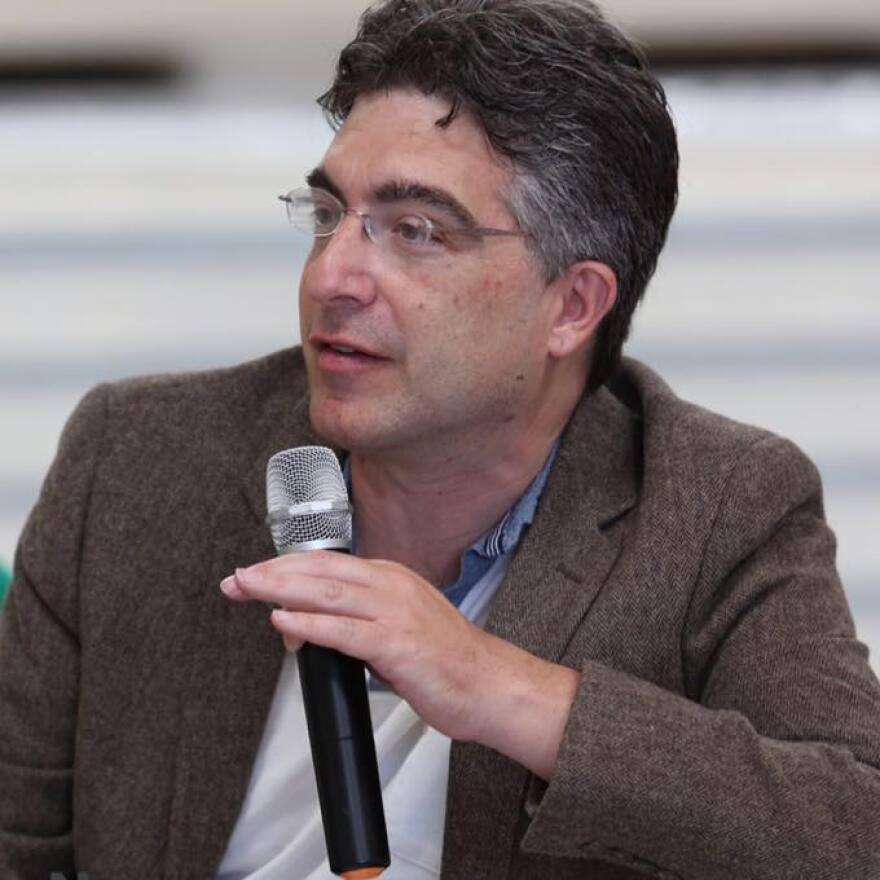Commentary: Life changed quickly after Gov. Michelle Lujan Grisham declared a public health emergency on March 11 to slow the spread of the COVID-19 coronavirus.
The team of reporters with whom I work raced to keep up with developments. Schools closed, concerts and events were canceled, hospitals restricted visitors. The public was encouraged to work remotely if possible, limit social contact and be extra vigilant about hygiene and health. More than once, I filed a story only to learn it was already out of date and needed to be rewritten.
“I hate how scared I am,” a colleague confessed to me at a news conference.
The actual information we had to report was not terrifying, but rather the unknowns: How many undiagnosed cases might be walking about, what might happen to our healthcare systems in a large outbreak and the inevitable economic impact of all this, especially for small businesses and people precariously situated in the “gig economy.”
People responded in their own ways. Some looked for connection, others built walls. Some ground political axes. There was panic-buying of toiletries and hand sanitizer, some of which turned up on Amazon and eBay at unconscionable markups. (Is that grift, or enterprise?) Some withdrew socially while others made a point of going out and maintaining a semblance of normalcy.
In Italy, amid terrible suffering, there were also glimmers of resilience, with people in locked down cities singing to each other through their windows.
During these long days I carried about with me a small book known as the Enchiridion, a handbook of philosophical guidance from Epictetus, the first-century philosopher born into slavery in what is now southwestern Turkey. Consisting of brief chapters, the handbook is well suited for reading during short breaks, a drink after work or before going to sleep.
The book was an affable companion through the week. Epictetus was a stoic who occasionally comes off as severe and rather strange, but in practical terms his guidance is bluntly humane and helpful during weird times, especially if reading is accompanied by some kind of meditative physical activity, as it should be.
The first principle is to be aware of what is actually in our control and what is not. With a clear understanding of what levers we actually have and some imagination, we can make the most of the options available to us and not lose ourselves in fussing over what we cannot change.
In the midst of a pandemic, we can assemble the best information available and ignore political noise and paranoia (especially on social media). We can refuse to be manipulated. COVID-19 is highly contagious and can be dangerous, even if most people recover. There are practical steps toward maintaining healthy habits (including handwashing), helping society slow the outbreak and being kind.
Another principle expounded in the Enchiridion is that when we react to things, we are actually reacting to our own opinions and judgments. We are emotional beings by nature, and feelings can clarify what actions to take; yet being consumed with anger over the empty shelves at the store, or your opinion about the governor or the president, is something you do to yourself and may not help you live.
Ultimately, Epictetus wants all of you mixed-up, baffling, lovely people to understand what is truly yours, take care of yourselves and each other, live freely and realize your humanity to the fullest; and so do I.
The Stoics have a reputation for promoting a kind of martial toughness and alienation, but Epictetus (who taught philosophy after being freed from bondage) actually points in the direction of resilience and preparation for the sorrows and joys of being alive.
While implementing “social distancing” this month, you may find him good company.
Now go wash your hands.


